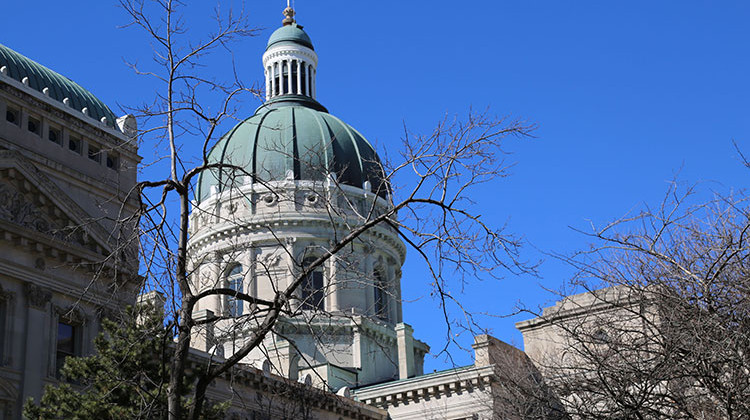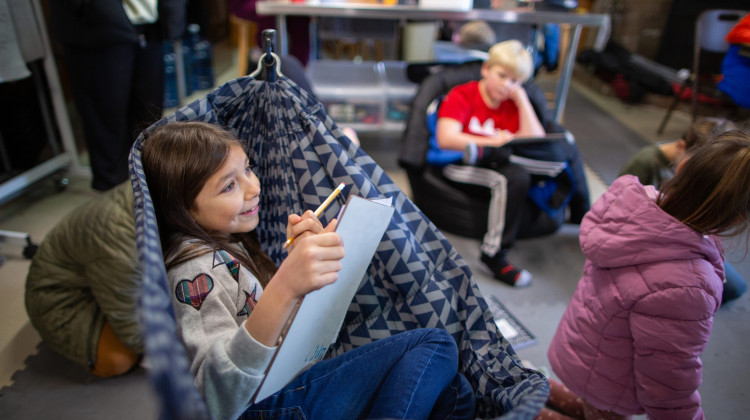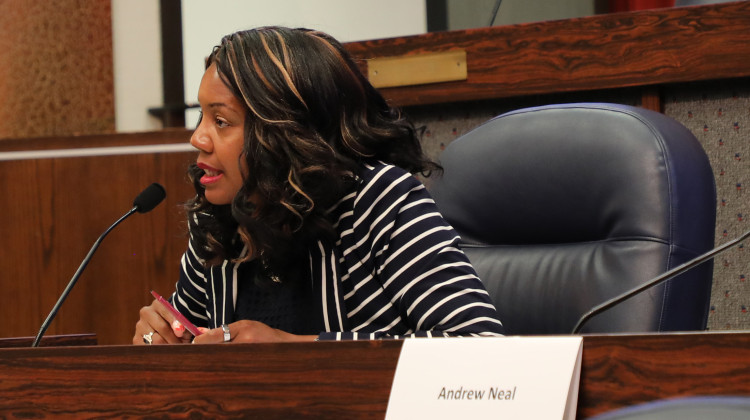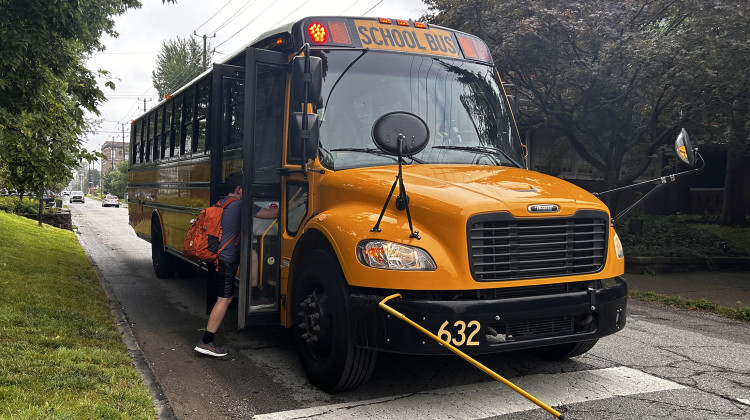
Indiana legislators are considering a bill that would clarify an existing law to say that schools cannot offer incentives with monetary value to prospective or current students in exchange for enrolling, re-enrolling, or continuing to attend a school.
Indiana lawmakers want to tighten restrictions on schools offering incentives to attract students, after an unusual virtual program advertised a $1,700 stipend for school supplies, music lessons, and Netflix subscriptions.
The legislature’s move follows a Chalkbeat report on rising criticism over Tech Trep Academy, which drew a warning last school year from state education officials who said the stipend violated state law.
The controversy led Tech Trep to stop directly reimbursing families. The program, which is privately run and receives state funding, converted to a point-based system. Each student receives 85,000 points at the beginning of each semester and can use them to buy Tech Trep courses or educational resources the school orders for them from Amazon or other retailers.
The tuition-free program doesn’t require traditional classes, leaving it up to families to choose their own curriculum. If a student wants to take Tech Trep courses, some cost 20,000 points.
Families have a lot of freedom on how to spend their points. They can redeem them for expenses including educational toys, gym memberships, science kits, and internet access.
Tech Trep Director of Operations Janet Cox has come under fire for saying she uses the funds to buy Christmas gifts for her children.
But House education leader Bob Behning says Tech Trep’s point system remains an enrollment incentive since all students receive a set number of points for signing up. The Indianapolis Republican has proposed a bill this year that could challenge Tech Trep again.
“We want parents to choose what’s in their best interest, but we don’t want them to be doing it for financial reasons,” Behning said. “We want them to be doing it for education reasons, or sometimes it’s school safety.”
The bill would clarify an existing law to say that schools cannot offer incentives with monetary value to prospective or current students in exchange for enrolling, re-enrolling, or continuing to attend a school.
As part of a larger bill that also includes suspending A-F school ratings again, the proposal unanimously passed the House last month, and the Senate education committee is scheduled to take it up Wednesday.
The original law, passed in 2015, more narrowly sought to prohibit schools from offering cash or gift cards to woo families, after an Indianapolis charter school promoted a $100 grocery store gift card for referring new students. Schools receive state funding based on how many students they enroll.
Behning drew a distinction between Tech Trep’s point system and an example of a school where students earn rewards for good behavior or academic progress.
But Cloverdale Schools Superintendent Greg Linton, whose district oversees Tech Trep, said he doesn’t view the point system as a monetary incentive. “Tech Trep’s point system allows families, who choose to home educate, access to the same type of educational support materials that our traditional students access at our school buildings,” he wrote in an email.
Tech Trep Indiana official Lauren Bailey declined to comment.
Run by a for-profit Utah company, Tech Trep has drawn backlash from lawmakers, public education advocates, and home-schooling supporters, who say the program receives public funds for students who are essentially home-schooled.
Tech Trep’s supporters defend the program as a way to support families that preserves flexibility in how they educate their children.
Tech Trep allows K-8 families to choose their own curriculum and requires them to submit learning logs and student work to demonstrate learning. Each student is assigned a homeroom teacher. Tech Trep also hosts free field trips and a Facebook support group.
While families can start spending their points at the beginning of the year, Tech Trep’s parent guidebook notes that students cannot access their points if their grades fall below 80 percent. Students in grades K-6 receive pass/fail grades, and teachers score submitted work in grades 7-8.
Families can keep the resources bought with points as long as their students complete required work and testing.
Now in its second year in Indiana, Tech Trep has grown to about 400 students, from about 165 last year.
Tech Trep has contributed to a sizable enrollment increase at Cloverdale, a small district near Greencastle. Over the past decade, Cloverdale’s student population had declined by about 20%, dwindling to just over 1,000 students last school year.
With the addition of Tech Trep Academy, Cloverdale jumped to about 1,400 students this year, hitting its highest enrollment since the late 2000s.
The partnership allowed Cloverdale to keep 20% of the state funding for each Tech Trep student, with the rest going toward hiring teachers and paying for materials for families. So far, Cloverdale has made about $400,000 from the Tech Trep partnership, Linton said. The district used the money to support the program and to give its other teachers raises, increasing its beginning teacher salary to $40,000 to meet a new state law.
“Without this partnership, Cloverdale Community Schools would have had to explore possible program eliminations or staff cuts to meet the statutory salary minimum,” Linton said.
Chalkbeat is a nonprofit news site covering educational change in public schools.
 DONATE
DONATE







 View More Articles
View More Articles



 Support WFYI. We can't do it without you.
Support WFYI. We can't do it without you.